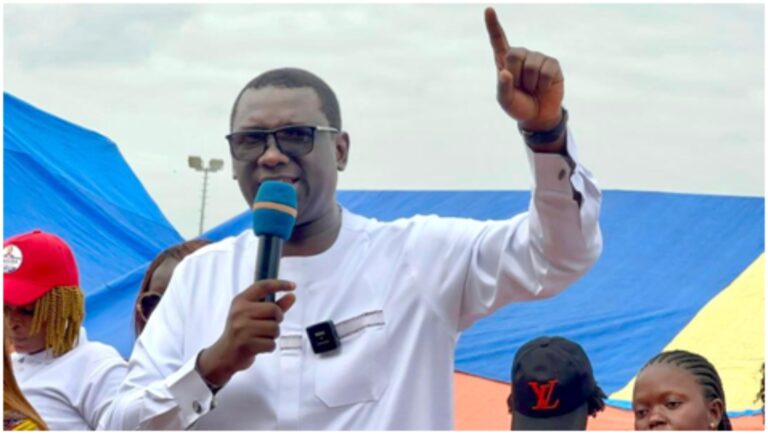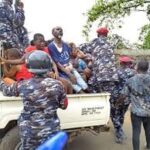A STORY OF DEDICATION AND SERVICE: PART 9
By Samuel Ben Turay (Ataya Pot)
On a wet June afternoon in Freetown, far from the imposing ministries of power, over 100 indigenes of Port Loko and Karene districts met at Laura Dove Secondary School to reflect on one man’s decision that altered the fate of two communities. It was December 2018, and the Mabanta Ferry, a simple vessel strained by time and timber, had broken down, cutting off the only affordable and direct passage between the two districts.
Between the Sanda Magbolonthor chiefdom in Karene and Kasebureh in Port Loko, the Rokel River glides with deceptive serenity. But to those it divides, the river is not scenery, it is a barrier to schools, clinics, markets, and homes. This crossing is vital for reaching all thirteen chiefdoms in Karene and several in Port Loko, where agriculture, fishing, and cattle rearing form the spine of local economies.
On that fateful day, Dr.On that fateful day, Dr. Ibrahim Bangura, a relatively young APC stalwart and peace and development scholar, arrived to continue his Door-to-Door campaign tour. Instead, he walked into a scene of quiet crisis: stranded schoolchildren in the middle of examination week, women in labour, goods rotting under the sun, and families torn between risk and ruin.
Upon learning that the ferry’s puller was damaged, a result of chronic overloading and lack of government maintenance, Dr. Bangura acted. He funded the immediate repair of vessel, and more poignantly he also stayed for four hours with the stranded, sharing food and listening. “This is not just about a ferry,” he told them. “It’s about the lives and futures tethered to its movement. The government must never forget these rivers and the people who cross them.”
Among those saved was a pregnant woman. She laid on the ground, sweating and writhing in distress under the sun. Her husband, Alhaji Issa Jalloh of Ro Baray, Karene, feared the worst. In a nation where health infrastructure often fails the rural poor, the ferry was her only bridge to emergency care. Had the ferry not moved that afternoon, she might have delivered in the bush.
But thanks to Bangura’s timely financial assistance, the repairs were done and the ferry crossed. Hours later, at Port Loko Government Hospital, she gave birth to a healthy girl, named Haja Ibrahim Jalloh in honor of the man who restored the ferry and her family’s future.
“I thought I was going to lose both of them,” Jalloh recalls. “She was screaming, and there was no other way to cross.”
Bangura’s decision rippled beyond the river. Dauda Koroma, a young man returning to say goodbye to his ailing father, barely made it in time for a last conversation and traditional inheritance rites. “Had I not crossed that day,” he said at a recent meeting, “our family would have lost more than a father, we would have lost history.”
These are not isolated testimonials. They reflect a moment of truth, leadership, and empathy. A ferry fixed in 2018 became a symbol of what is possible when political figures prioritize human lives over political optics. Dr. Bangura didn’t just repair a ferry, he restored faith in leadership.
His act remains a compelling case for infrastructure development in underserved areas, and a political reminder: real leadership is found in moments of crisis. For the people of Port Loko and Karene, the Mabanta Ferry is no longer just a crossing point, it is a monument to compassion and action.
These stories, now folklore in places like Ro-Baray, Moforki, Ro-Bamoi and Rokulang, tell of of how one intervention by a committed private citizen lit a spark in a region too often forgotten in the capital’s policy calculations.
From the muddy banks of the Rokel to the meeting halls of Freetown, the message was clear: Sierra Leone’s infrastructure is a tale of two countries, one of paved pledges, and another of ferry lines and fading hope. Dr. Bangura, in repairing a puller, momentarily repaired trust. “This is how a good leader is tested,” said Bobson Bangura of the local British Organization. “He didn’t just talk, he crossed with us.”
They now call for a permanent bridge to replace the ferry. And they place their hopes on the man who, seven years ago, did not pass them by. In Dr. Ibrahim Bangura, they believe they have found such a leader who can be trusted.







Cities’ message to world leaders: Unlock direct climate finance for Africa’s urban future